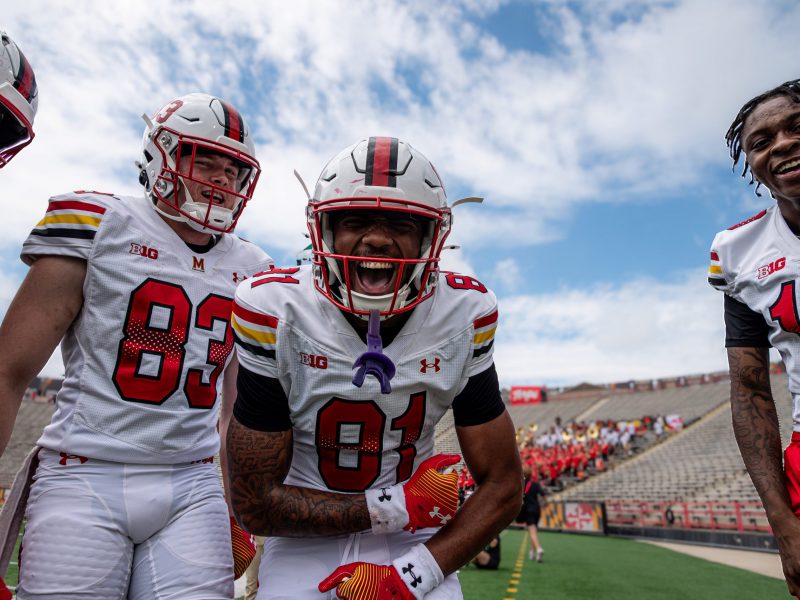At this university, as in others across the country, sports play a huge role. Every year, students and alumni eagerly await the start of their favorite sport’s season — packing the stands and cheering for the Terps with a zeal and a passion that is notorious nationally.
And why shouldn’t they? With five Atlantic Coast Conference and two NCAA championships in the 2008-09 athletic season alone, Terps fans have a lot to cheer about.
But fans of university athletics often forget that playing a sport at the NCAA level is dangerous — and not just for the student-athletes in contact sports such as football. Competing in any varsity sport requires an intense amount of discipline —both physical and mental. Competitions oftentimes lead to injury: Football players frequently get concussions; soccer players often tear their ACLs; even competitive swimmers, who are often thought to participate in a low-injury sport, commonly experience painful muscle trauma in their shoulders and knees.
Recognizing this, the athletics department and the NCAA have measures in place, which are designed to limit the physical trauma of playing a collegiate sport. All NCAA student-athletes are required to have yearly physical checkups and are given access to chiropractic care, acupuncture, massage therapy and nutrition counseling as needed. Additionally, physicians are on-call six days a week to respond to the medical needs of student-athletes, and the athletics department even has a opthamologist and a dentist on payroll.
However, while the university and the NCAA have done an admirable job of addressing the physical needs of student-athletes, they have a less-than-stellar record when it comes to ensuring players’ mental health.
Although the university’s athletics department lists sports psychology as one of the services that student-athletes can access, it does not have a single staff member listed in its sports medicine directory who specifically deals with the mental concerns of competitors. And despite requiring numerous screenings and examinations for their incoming and returning student-athletes, not a single screening or appointment is required to address their mental well-being. It is not unusual to forget that athletes, whose identities seem irrevocably intertwined with game-day statistics and physical prowess, have needs that may not be easy to see.
The physical, academic and social pressures that student-athletes face can make them more susceptible to mood disorders, a fact that the NCAA has recognized. For example, repeated concussions — such as those that football players often incur — can lead to chronic traumatic encephalopathy (CTE), a condition that has been linked to depression and even suicide. Indeed, just last month, a football player from the University of Pennsylvania hanged himself — a tragedy that physicians later speculated could have been caused by a mild case of CTE. Additionally, the stress that can come from time-consuming and physically demanding practice schedules coupled with academic pressures can make student-athletes particularly prone to anxiety disorders, which can lead to panic attacks.
What is worse, as studies have shown, many student-athletes refuse to admit they are experiencing mental problems to avoid the stigma that seeking psychological help can hold. Thus, many student-athletes fail to get treated for their mental health issues — leading to problems both on and off the field.
If this university truly wishes to take care of its student-athletes — and we believe it does — then it should work to address not just physical problems, but also mental ones.


